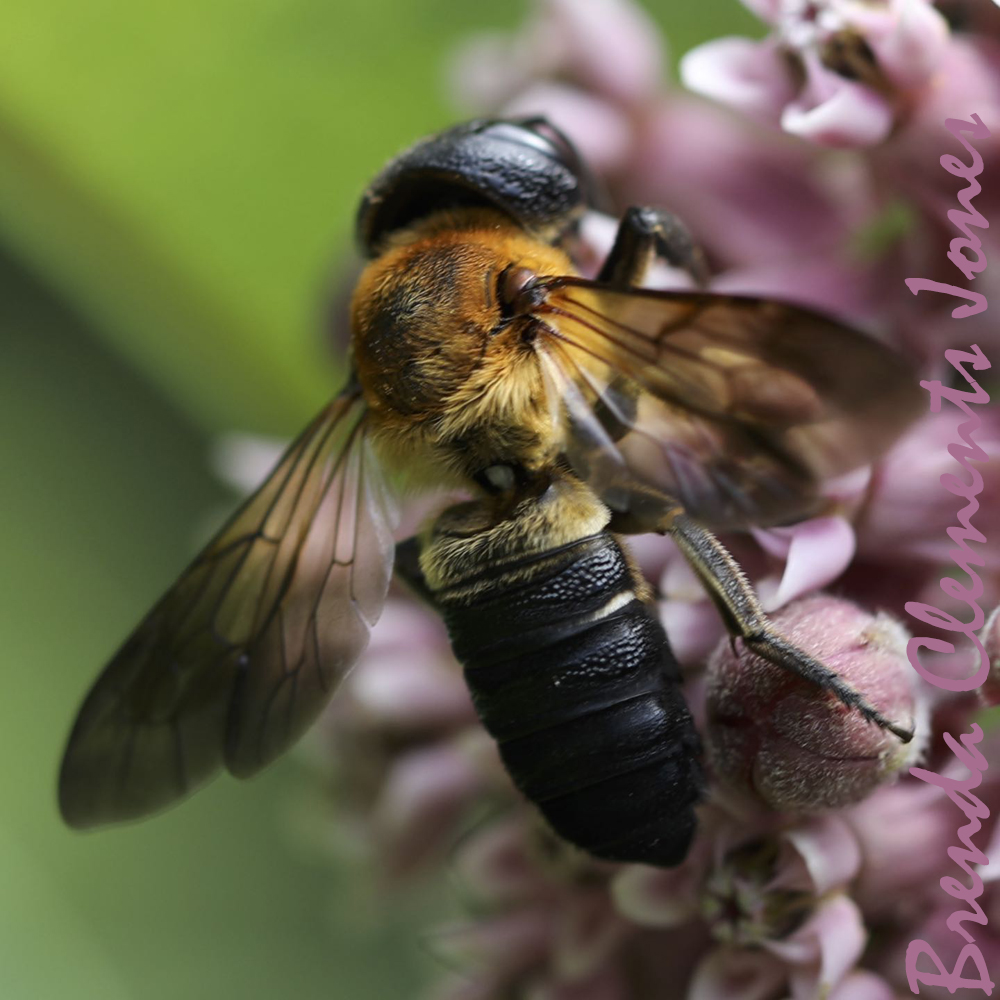
Common Milkweed (Asclepias syriaca) is an incredible magnet for pollinators.
A few mornings ago I found a surprise among the fragrant blooms of my milkweed. I’m accustomed to seeing Honey Bees, knowing they are not native to North America but I hadn’t given thought to there being any other world travelers visiting my mountain.
Several Giant Resin Bees (Megachile sculpturalis) were collecting pollen. These bees are native to eastern Asia and arrived on our shores, accidentally, and identified in 1994. The word “giant” in its common name is appropriate since these measured in at close to an inch.

Giant Resin Bees look for nooks and crannies, crevices and holes in trees, downed logs and debris for a place to nest. They will sometimes displace native Carpenter Bees, finding the holes the Carpenter Bees create the perfect spot for their nest. It is still unknown whether these nonnative bees will have a deleterious effect on our native bees. Stay tuned.

10 responses to “Giant Resin Bees”
Brenda, I have seen them here also…❤️❤️
Wow Judie! Apparently, as Dad would say, “They’re ubiquitous!”
In MHO any bees are good bees. They will all accommodate. Never met a bee I didn’t like. lol
LaVonne, I wish my granddaughter felt that way. She is quite afraid of bees of any sort. One of these days I’ll help her get over it! Thanks for reading my post! <3
wow!
Anita, thanks bunches for reading my post. Hope you are enjoying the nature that is in your area! Bren
As always Brenda, your posts are an informative joy, to the mind and the pictures to the senses. I will review my many pictures of bees and milkweed this year for something similar if only to say, hey, I got one too and thanks for the heads up on this new development in our fast changing world. As for my plot, most of my milkweed went from flower to seed and the bees have left town for more pollen filled pastures so to speak. Ken C.
Ken, so glad you read (and enjoyed!) my post. I love to find new things, whether plant or animal life. That this bee was not native took me by surprise, but I suppose I should expect that these days. We seem to be becoming a smaller and smaller planet. I’ll be looking forward to getting a report from you on the status of your pollinators in your milkweed plot! Bren
Thanks for this very interesting post , My husband, Zac planted lots of milkweed . We will have to check our Bee types !
Hugs, Linda
Linda! So glad you read my ramblings. And good for Zac, the milkweed planter! Our bees need every bit of help we can give them. I hope you and your family are doing well. Thanks for the hugs. I’m sending many hugs back your way! 💚🌷💚